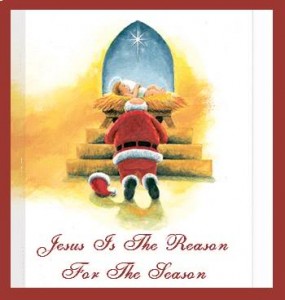All Reading Plans
-
Prof. Horner's Bible Reading System » 8 Months
This reading plan is provided by Prof. Grant Horner.
Prof. Horner’s Bible Reading System is meant to be an intense foray into every part of the Bible. This system will have you reading ten chapters each day if followed properly. The intent is to read quickly through each chapter, being careful not to “skim” or “dig-deep” into any single section. Good luck!
-
M'Cheyne One Year Reading Plan » 1 Year
This reading plan is provided by ESV.
This plan is based on the M’Cheyne reading system, featuring four different readings for use in both family and personal devotions. Each day has two passages from the Old Testament, one from the New Testament, and one from either the Psalms or the Gospels. In one year, you read the Old Testament once and the New Testament and Psalms twice.
-
Outreach New Testament » 1 Year
This reading plan is provided by ESV.
Each daily reading will guide readers through the New Testament as they encounter Jesus and the gospel. A great resource for those who are newcomers to the Bible.
-
Old Testament » 2 Years
This reading plan is provided by BiblePlans.org.
This plan will take you through the entire Old Testament over the course of 2 years. It’s great for someone who wants to spend a little extra time on each chapter or would like an easier, slower plan that.
-
Psalms » 31 Days
This reading plan is provided by BiblePlans.org.
Reading through the book of Psalms is great for a simple pick-me-up. When you’re going through a hard time, the book of Psalms can serve as a comfort and encouragement.
-
One-2-One » 25 Days
This reading plan is provided by Every Nation.
One-2-One was written as a simple tool to aid in personal follow-up and discipleship. It’s a guide. It cannot make a disciple, but it can help you make one. Most importantly, it helps a new disciple get the right start.
-
New Testament Epistles and Acts » 85 Days
This reading plan is provided by YouVersion.com.
Reading through the Pauline, Pastoral, and General Epistles has never been easier. This plan, compiled and presented by the folks at YouVersion, will help you easily read through every letter in the New Testament. And we tossed in a dash of Acts for good measure.
-
Old Testament » 1 Year
This reading plan is provided by YouVersion.com.
Want to spend some time focusing on the Old Testament? This plan, compiled and presented by the folks at YouVersion.com, will help you read through the entire Old Testament while mixing passages from historical, poetry, and prophetic books.
-
The Gospels » 30 Days
This reading plan is provided by YouVersion.com.
This plan, compiled and presented by the folks at YouVersion.com, will help you read through all four Gospels in thirty days. Get firm grasp of Jesus’ life and ministry in a short span of time.
-
Psalms and Proverbs » 373 Days
This reading plan is provided by YouVersion.com.
The Psalms & Proverbs plan was compiled by the folks at YouVersion.com to help you read through the book of Psalms twice and Proverbs 12 times. This plan is meant to be read over the course of one full year.
-
First Steps Reading Plan » 1 Year
This reading plan is provided by Wayne Cordeiro.
The Life Journal First Steps Reading plan was developed by Wayne Cordeiro. This plan takes a only a portion of the reading from the Life Journal Plan and offers a decreased amount of reading without losing the flow. This plan is perfect for youth and new believers. For journals and related resources, visit lifejournal.cc.
-
Bible in 90 Days » 90 Days
This reading plan is provided by Bible Gateway.
How long does it take to read through the entire Bible? Would you guess just 90 days? The Bible in 90 Days is a Bible reading plan created by Ted Cooper in 2002, designed to walk you through the Bible over the course of just three months. That works out to 12 pages of reading each day—a commitment, but certainly manageable, and one that’s well worth making.
-
Project 345 Plus » 1 Year
This reading plan is provided by The Ark Church.
Project 3:45+ is an extended version of the New Testament reading plan, Project 3:45. The “Plus” adds a Psalm or Proverb per day (including weekends) and selected readings from the Old Testament five days per week. The beauty of a Bible reading plan is that all the guesswork is removed and there is always a place to start and a sense of direction. For those that really want to add more to their devotional reading time Project 3:45+ offers great options.
-
Project 345 » 1 Year
This reading plan is provided by The Ark Church.
Project 3:45 is a simple, effective way to read the entire New Testament in one year. The plan involves reading one chapter per day five days a week and uses the weekends to catch up if you missed any days. The plan was named for the average of the three minutes and forty five seconds that it takes to read one New Testament chapter (obviously this time will vary due to individual reading rates, chapter lengths, and etc., but you get the point). It’s never too late, start today!
-
New Thru 30 » 30 Days
This reading plan is provided by Elevation Church.
The New Thru 30 reading plan from Elevation Church takes you through the entire New Testament in 30 days. Much like the B90X plan, also from Elevation Church, New Through 30 will stretch your mind, heart, and will to continue with an intense pace of Bible reading over the course of 30 days.
-
Blended » 1 Year
This reading plan is provided by Blue Letter Bible.
This plan is designed to add variety to your reading of the Bible. The Blended plan divides the Bible so that the reader will read books in a non-traditional sequence. For example, while one is reading the book of Isaiah, he is also reading the book of Mark.
-
Old Testament and New Testament » 1 Year
This reading plan is provided by Blue Letter Bible.
It is important to understand the fullness of God’s message to the churches, and a great way of doing this is reading the Old and New Testaments simultaneously. This plan, which can be completed in one calendar year, does just that. Readings from both Testaments are included from the beginning and although each reading does not contain both Testaments, the two are read effectively.
-
Historical » 1 Year
This reading plan is provided by Blue Letter Bible.
Have you ever wondered what it would have been like to read the Old Testament in ancient Israel? Or, the New Testament as the books were written? In this plan, the order of the Old Testament readings is very similar to Israel’s Hebrew Bible, progressing from Law to Prophets to Writings. The New Testament ordering is based upon research regarding the order in which the books were authored. Although this research is not conclusive, it may offer helpful insights to your Bible reading.
-
Chronological » 1 Year
This reading plan is provided by Blue Letter Bible.
The Blue Letter Bible “Chronological” plan is compiled according to recent historical research, taking into account the order in which the recorded events actually occurred. This is a fantastic plan to follow if you wish to add historical context to your reading of the Bible. If the schedule provided is followed, the entire Bible will be read in one calendar year.
-
Canonical » 1 Year
This reading plan is provided by Blue Letter Bible.
The Blue Letter Bible “Canonical” plan goes straight through the Bible — from Genesis to Revelation. You will be supplied with reading for each day of the week as a steady guide toward finishing the entire Bible in one calendar year.
-
Life Journal Reading Plan » 1 Year
This reading plan is provided by Wayne Cordeiro.
The Life Journal Reading plan was developed by Wayne Cordeiro and is designed to help you read through the Old Testament once and the New Testament twice each year. For journals and related resources, visit lifejournal.cc.
-
B90X » 90 Days
This reading plan is provided by Elevation Church.
B90X is a revolutionary system of intense, truth-absorbing, brain-busting Bible reading that will transform your understanding of Scripture from intro to nitro in just 90 days! Your personal trainer, Ruach “The Breath” Yahweh, will drag you through the most intense infusion of His vision that you have ever experienced and you won’t believe the results!
-
Robert Roberts » 1 Year
This reading plan was created by Robert Roberts over 100 years ago.
Robert Roberts developed this reading plan to facilitate his daily systematic reading of the Scriptures. A form of this plan was later published as The Bible Companion and is still used around the world today.










